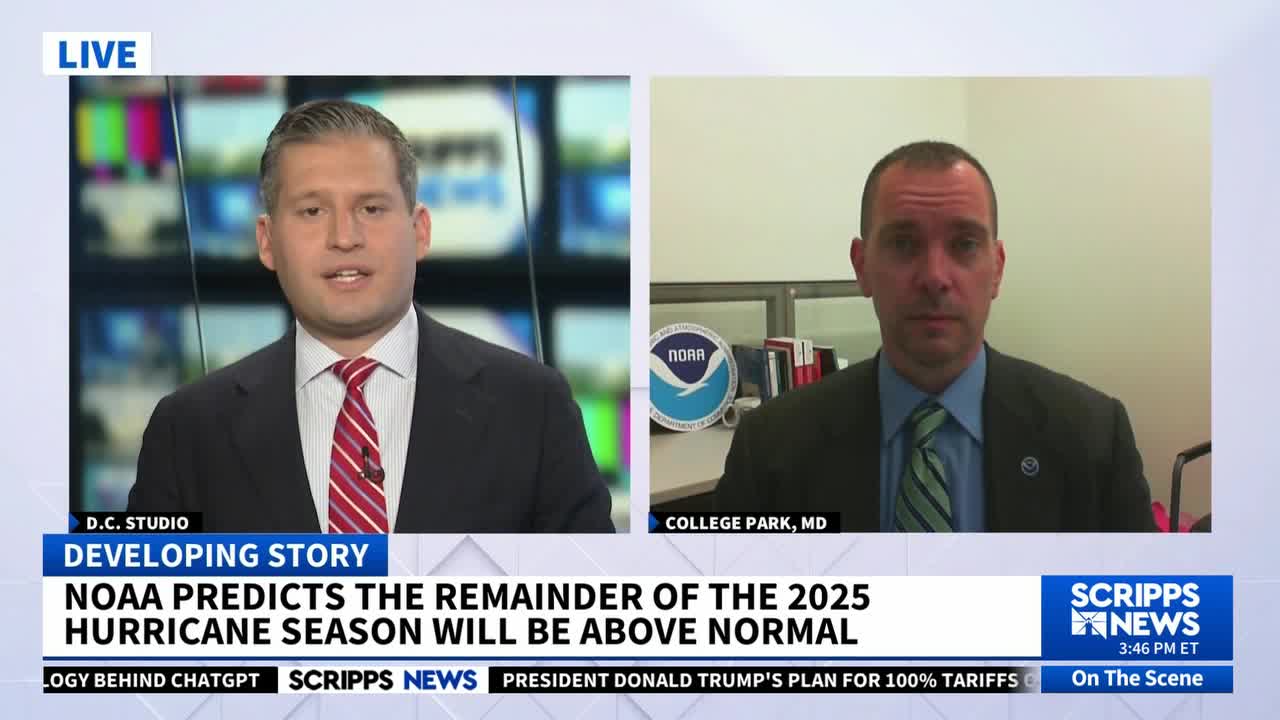So far the 2025 Atlantic tropical season has seen four named storms, none of them reaching hurricane strength.
But the National Oceanic and Atmospheric Administration just released an updated Atlantic outlook for the rest of the season and forecasts storm activity is expected to remain above normal.
Scripps News spoke with NOAA's lead hurricane season forecaster Matthew Ronsenkrans to understand the changes in the forecast and what to expect for the rest of the season.
"We started out with 13 to 19 named storms and now we're forecasting 13 to 18. So just a slight bit down. Most things are still looking like on track. Its just been a little quieter at the beginning of the season that during most busy years," Ronsenkrans said.
What factors have kept storm development muted so far this season?
"There's been a lot wind shear in the Caribbean, which is kind of the difference between the winds at 5,000 feet off the ocean surface and 45,000 feet up in the air," Ronsenkrans said. "Those winds have been very different. So we haven't had any kind of development over the Gulf [of Mexico]. We've only had some very short-lived storms, that kind of formed right near the coast and the moved inland like [Tropical Storm] Chantal, or like Dexter and kind of just got swept out to sea."
RELATED STORY | President Trump's pick to lead NOAA commits to prioritizing staffing at agency
What is changing that could lead to more storm development through the rest of the season?
"Some of that wind shear over the Caribbean is coming down recently," Ronsenkrans said. "We're still seeing that sea surface temperatures in the Atlantic, looking at the entire North Atlantic, they're at the 93rd percentile, so the 3rd warmest on record in that period from 1981. And even the deep tropics, the waters that were cooler earlier on — they've warmed faster than they would normally warm. So there are above normal as well. So a few factors have kind of moved in that positive direction compared to July time period."
Watch the full interview with Ronsenkrans in the video above.




